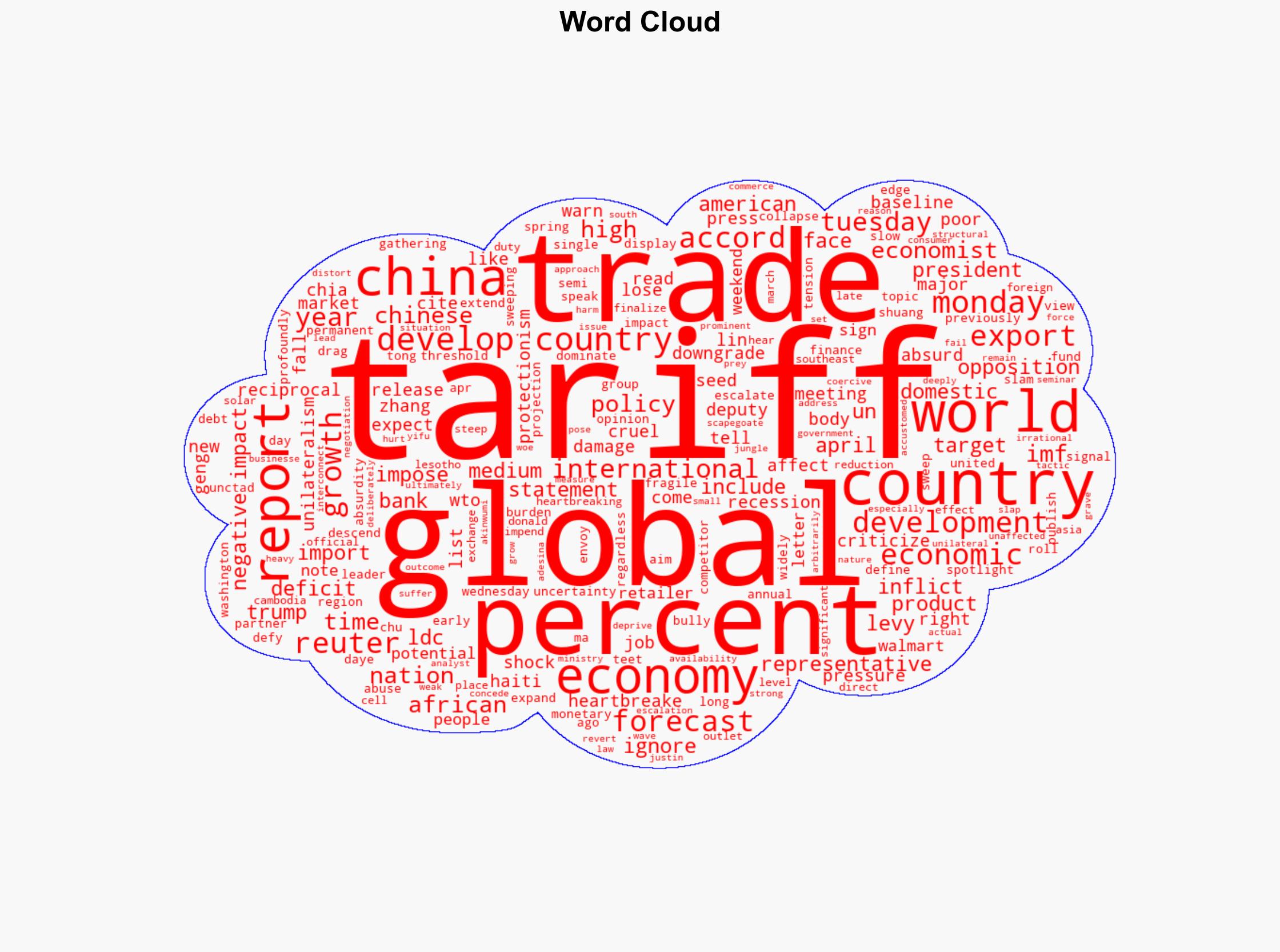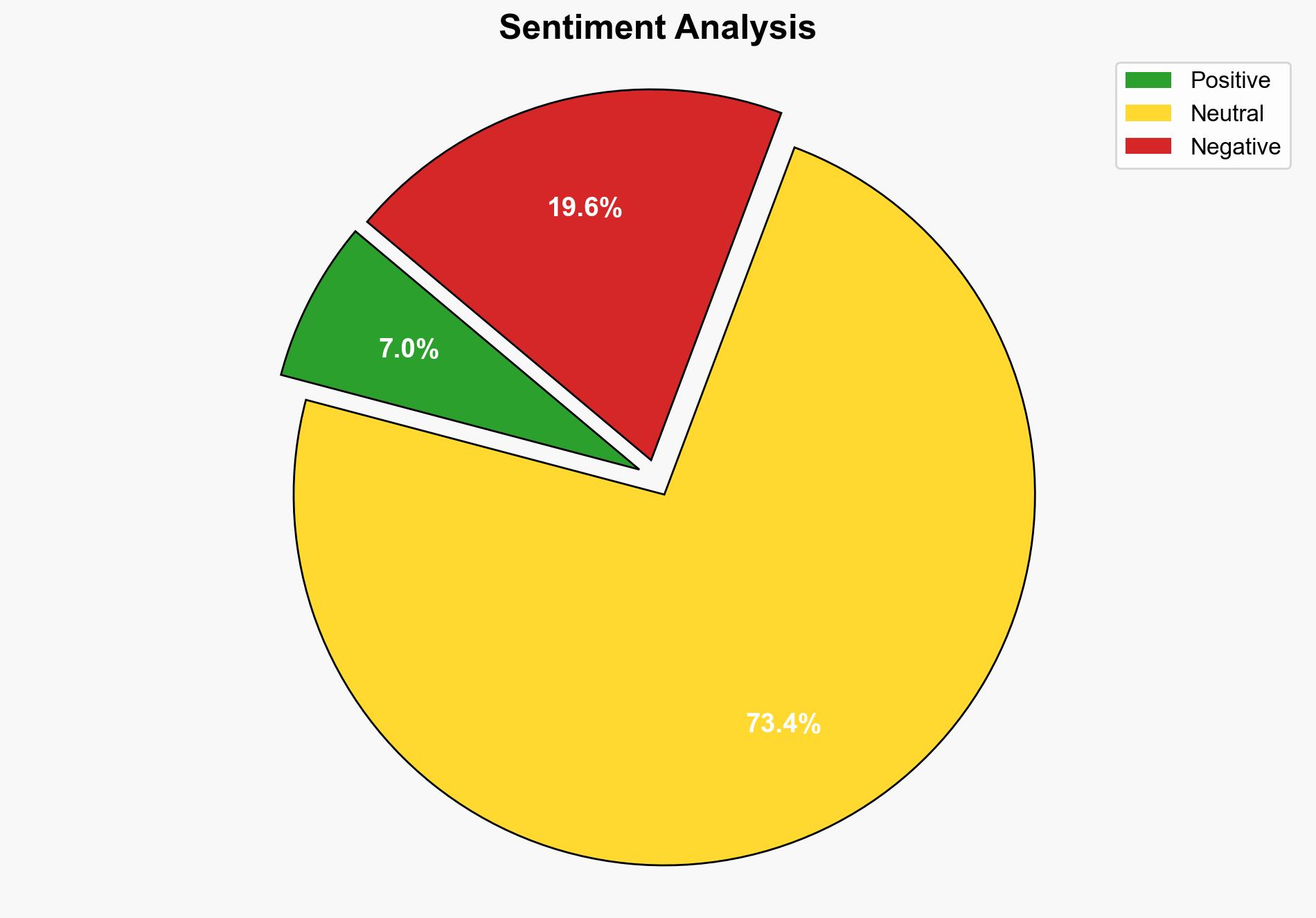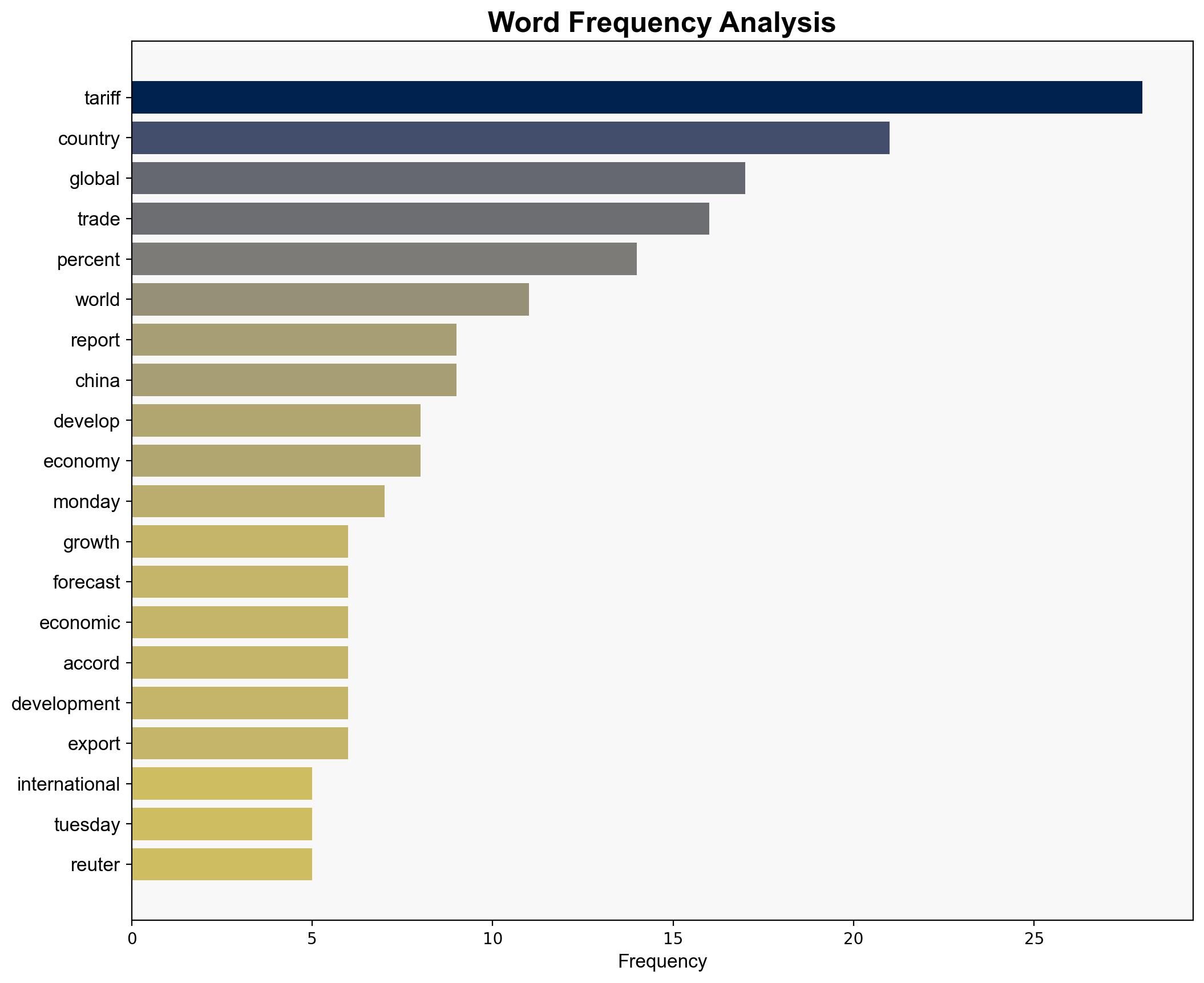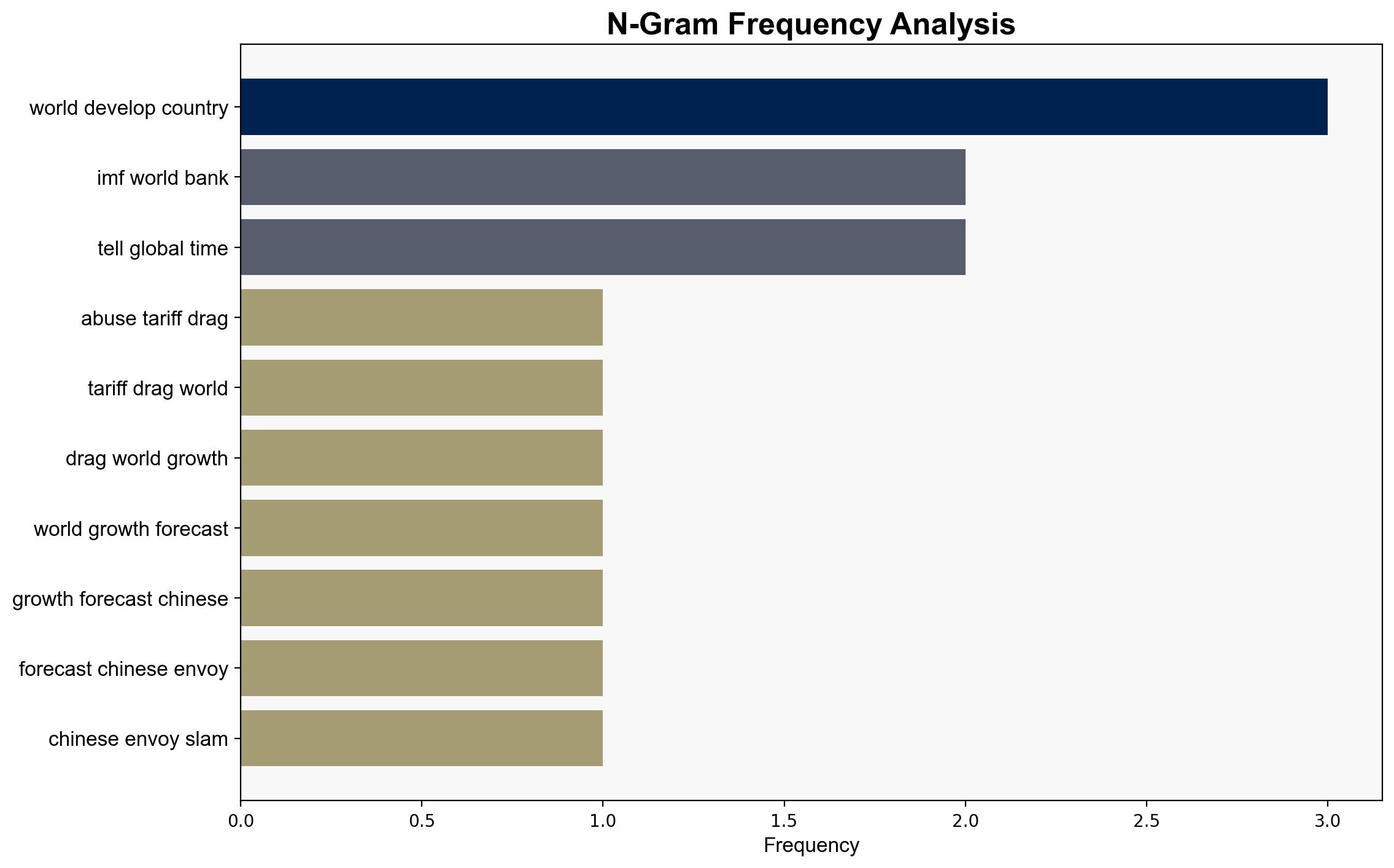US abuse of tariffs dragging down world growth forecast Chinese envoy slams ‘cruel and absurd’ levies on LDC ‘heartbreaking’ – Globalsecurity.org
Published on: 2025-04-23
Intelligence Report: US Abuse of Tariffs Dragging Down World Growth Forecast; Chinese Envoy Slams ‘Cruel and Absurd’ Levies on LDCs as ‘Heartbreaking’
1. BLUF (Bottom Line Up Front)
The imposition of tariffs by the United States is significantly impacting global economic growth, with particular detriment to Least Developed Countries (LDCs). The International Monetary Fund (IMF) has downgraded its global growth forecast, citing tariffs as a major factor. Chinese officials have criticized these tariffs as unilateral and protectionist, warning of their potential to exacerbate economic vulnerabilities in fragile economies. Immediate strategic considerations include reassessing tariff policies to mitigate adverse global economic impacts and exploring diplomatic avenues to address trade tensions.
2. Detailed Analysis
The following structured analytic techniques have been applied to ensure methodological consistency:
SWOT Analysis
Strengths: US tariffs aim to protect domestic industries and reduce trade deficits.
Weaknesses: Tariffs are straining international relations and harming global trade dynamics.
Opportunities: Potential for renegotiating trade agreements to foster more equitable terms.
Threats: Escalating trade tensions could lead to a global recession, disproportionately affecting LDCs.
Cross-Impact Matrix
The imposition of tariffs has created a feedback loop, amplifying economic instability in LDCs and increasing their debt burdens. This instability may lead to political unrest, further complicating international relations and economic recovery efforts.
Scenario Generation
Best Case: Diplomatic negotiations lead to a reduction in tariffs, stabilizing global markets.
Worst Case: Continued tariff escalation results in a global recession, severely impacting LDCs.
Most Likely: Prolonged trade tensions with periodic negotiations, maintaining economic uncertainty.
3. Implications and Strategic Risks
The current tariff strategy poses significant risks to global economic stability, particularly for LDCs. The potential for cascading economic effects includes increased debt burdens, reduced export capabilities, and heightened political instability. These factors could lead to broader geopolitical tensions and undermine international cooperation.
4. Recommendations and Outlook
- Reevaluate tariff policies to reduce global economic strain and foster international collaboration.
- Engage in multilateral discussions to address trade imbalances and prevent further escalation.
- Monitor economic indicators in LDCs to provide timely support and prevent economic collapse.
- Scenario-based projections suggest focusing on diplomatic resolutions to avoid worst-case outcomes.
5. Key Individuals and Entities
Geng Shuang, Justin Yifu Lin, Akinwumi Adesina
6. Thematic Tags
(‘global economic stability, trade policy, international relations, economic development’)





